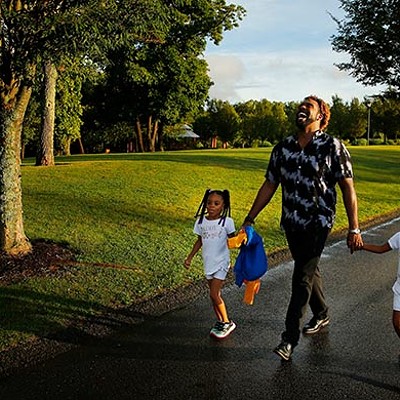As has become common when high-profile people take their own lives, the recent deaths of Kate Spade and Anthony Bourdain have thrust the topic of rising suicide rates back into the American spotlight. Nationally, rates have been increasing for decades; suicides in Allegheny County are higher than average. Dr. Gary Swanson, longtime psychiatrist at Allegheny General Hospital, spoke with City Paper about suicide and how to help people in need.
Is there any reason for the rising suicide rates?
I am not sure if we have a good understanding or explanation for it. We see people who overdose on opiates, but it can be hard to figure out if it was suicide or an accident. But we do know that substance abuse can lead to depressed mood. That can lead them to the decision to commit suicide.
In the past, some suicides may not have been reported. Sometimes, people “died of mysterious circumstances,” and that would have been it. It wouldn’t have been disclosed, I think people are a little more open to that now.
We also know that there has been an increase in depression rates in the population over the last 50-60 years. We do see depression as being more common and that may be why we are seeing more suicide.
Any specific reason why the Pittsburgh region is seeing above average suicide rates?
Older people can become discouraged with some of their infirmities and you can see some increased suicide rates there. And there are higher rates in suicide in white males. So you can look demographically and try to figure out if we are at a higher risk in that regard.
One thing that’s clearly associated with completed suicide is access to firearms. And Western Pennsylvania is a hunting community and there is a lot of access to firearms. If a patient is depressed or a suicide risk, we are trying to reduce their access to firearms because that has been shown to be particularly helpful in reducing completed suicide.
How can people help?
As far as what to say to someone who is struggling, most people will say “how are you doing?”. But you have to sort of get beyond that. If you really want to ask somebody about how they are doing, if you are concerned, you need to be willing to ask them some questions, spend some time and really listen.
People are often afraid to ask, “Are you so sad that you wished you weren’t alive?” That kind of open conversation is difficult to have. They are afraid that asking the question will put the thought in people’s head, but there is no data that says that happens. Sometimes people are relieved that you asked.



















